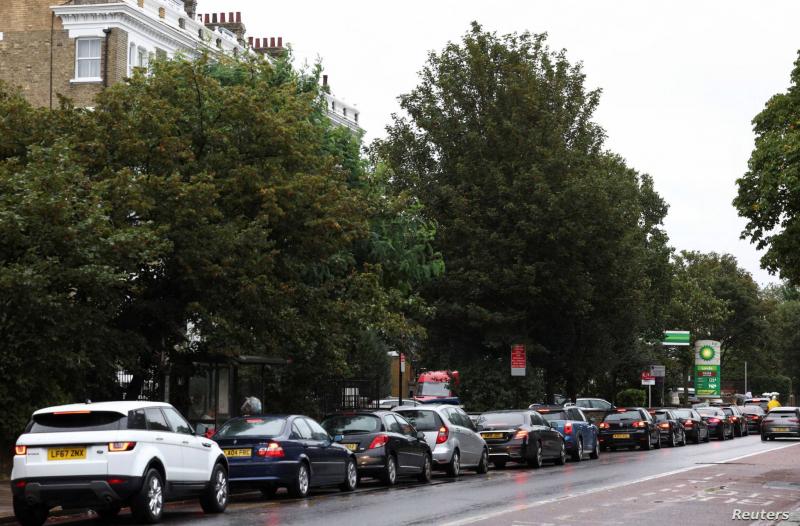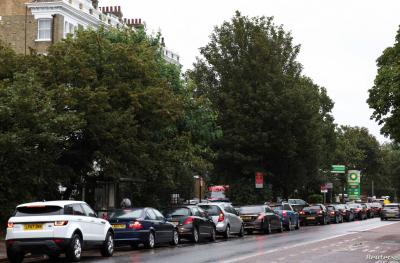A British official has warned that the fuel crisis in the UK is "getting worse" in some areas, with long queues outside petrol stations causing traffic jams for the second consecutive weekend. The Independent reported that Brian Madderson, the head of the Petrol Retailers Association, stated that the situation remains "critical" in London and the southeast of the UK, despite ministers claiming that it has stabilized. The newspaper noted long lines throughout the capital on Saturday at fuel stations, with BBC reporter Lewis Goodall tweeting that the queues in one area of South London were "longer" than the previous week, causing "significant congestion."
Madderson mentioned that while there has been improvement in northern England and Scotland, the fuel shortage continues to be "a really big problem" in London and the southeast, and the situation is worsening. Speaking to Sky News, he revealed that a survey by the association found that 16% of nearly 1,000 stations checked on Saturday had no fuel. This is an improvement from the 27% reported on Friday, yet traffic congestion remains ongoing.
The newspaper discussed some stations selling fuel at double the price, with one station selling fuel for £2.68 per litre (approximately $3.63), nearly double the average price of £1.36. On Friday, the UK announced that the military would begin distributing fuel to stations starting Monday, following a shortage of lorry drivers that led to citizens rushing to purchase fuel, prompting the government to exempt foreign drivers from visa requirements.
The UK government stated that "about 200 personnel from the military transport section, including 100 drivers, will be deployed from Monday to provide temporary support as part of the government's broader move to alleviate the pressure on petrol stations and address the shortage of heavy vehicle drivers."
Cars have been queuing at petrol stations across the UK for several days, leading to depleted stocks and frustrating drivers. British Business Secretary Kwasi Kwarteng remarked that "thanks to the tremendous efforts of the fuel sector over the past week, we are seeing ongoing signs of improvement at stations, albeit slowly." He added, "It is important to emphasize that there is no national fuel shortage in the UK, and citizens should continue to purchase fuel as usual. The sooner we return to our normal buying patterns, the faster we can return to normalcy."
The government attributes the crisis to a shortage of lorry drivers and unprecedented demand for fuel. With demand stabilizing over the week, stations are gradually replenishing their stocks, though some areas still face severe shortages. Military drivers were put on alert earlier in the week and underwent specialized training.
The British government has also implemented significant changes to its strict immigration policies, exempting foreign drivers from short-term visas to help fill the gap. Fuel companies including Shell, BP, and Esso have stated that there is "plenty of fuel at UK refineries," and demand is expected to return to normal soon. However, after more than a week of queuing, drivers in many parts of the country still cannot obtain fuel, raising concerns about the economic implications. Critics have blamed the government for the crisis due to its failure to address the shortage of lorry drivers following Brexit, as well as the COVID pandemic which caused many foreign drivers to leave the country.




